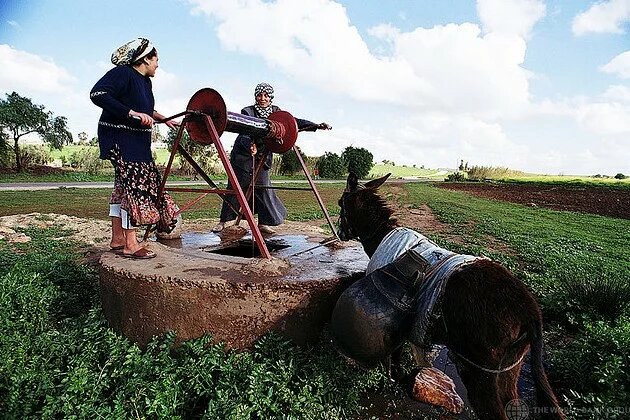
Sustainable use of its environmental resources is by many considered to be probably the most severe long-term development challenge for the Middle East and North Africa (MENA) region, which is also one of the regions of the world to be most severely affected by climate change. Yet despite a strong nexus between poverty as well social, political and economic exclusion and poor management of natural resources, governments in the region have not prioritized investments in the sustainable management of water resources and improvements in agricultural practices and productivity as the key to sustainable development. Nor has the region’s considerable oil wealth been used to build the governance and production structures needed for social and political equity and justice.
Women in the region, despite vast differences in their economic status, in particular have remained the societal group suffering from the most severe social and political exclusion despite important advances in improving their educational and health status. With climate change impacts expected to exacerbate existing inequalities and vulnerabilities, women in MENA countries due to the prevailing social and cultural norms in the region that deny them political, social and legal equality with men, are thus facing climate change impacts differently than men, with coping abilities and strategies that are local context-specific as well as gender-specific. Both local context and gender specificity need to be taken into account in projects and programs that deal with climate change impacts in the region and focus on reducing the vulnerability of nature and human systems to these impacts.
This desk study reviewed nearly 150 active climate change adaptation-relevant projects in the MENA region. By applying the OECD climate change Rio Markers to determine each project’s adaptation relevance, the authors identified 32 “adaptation relevant” active projects in the MENA region and systematically analyzed the extent of gender-sensitivity in multilateral climate change adaptation investments in the region, finding and elaborating both on best practice and worst practice examples.
Click here (PDF 2.40 MB 99pp) for the complete report.